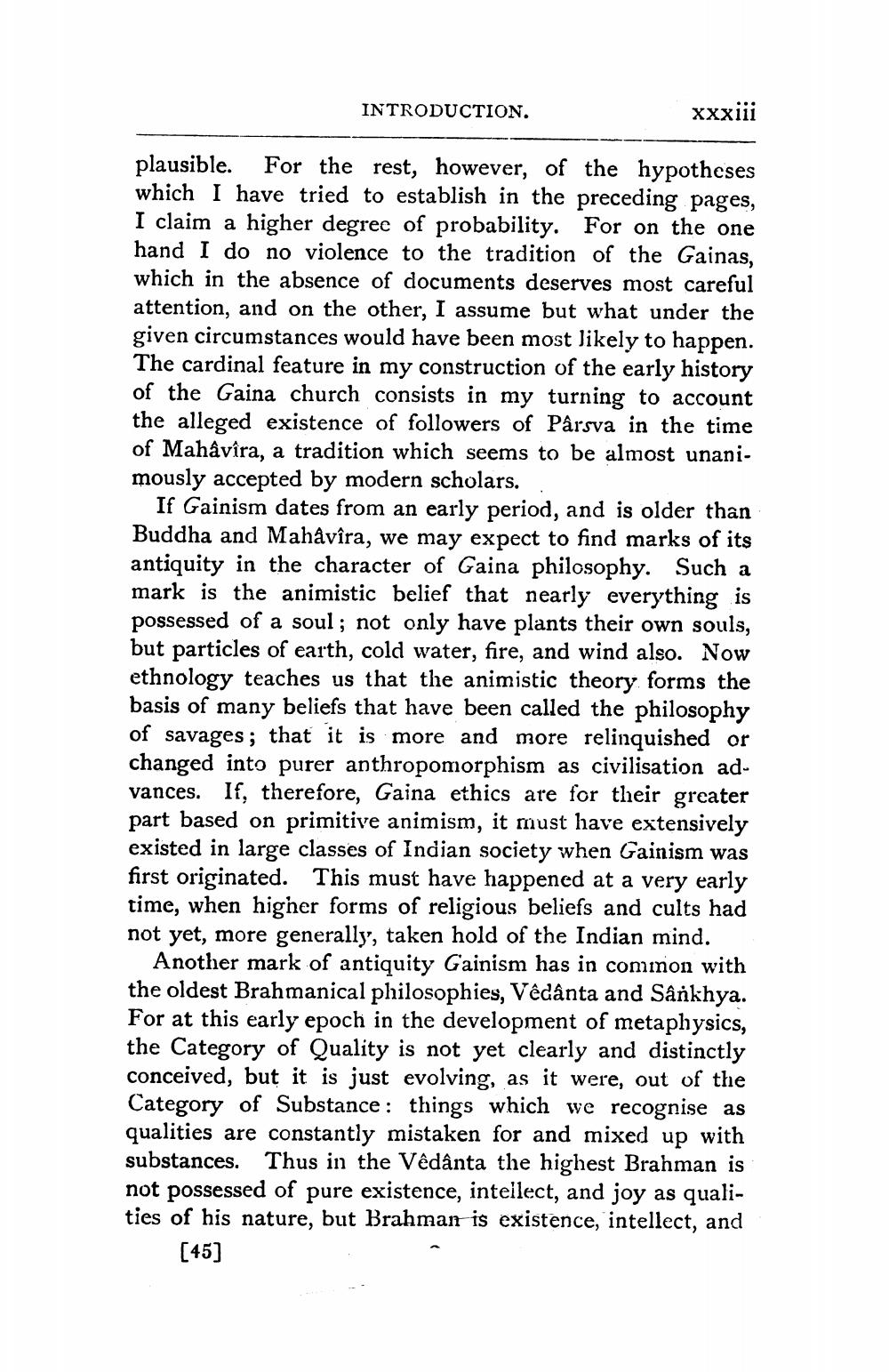________________
INTRODUCTION.
Xxx111
plausible. For the rest, however, of the hypotheses which I have tried to establish in the preceding pages, I claim a higher degree of probability. For on the one hand I do no violence to the tradition of the Gainas, which in the absence of documents deserves most careful attention, and on the other, I assume but what under the given circumstances would have been most likely to happen. The cardinal feature in my construction of the early history of the Gaina church consists in my turning to account the alleged existence of followers of Pârsva in the time of Mahâvîra, a tradition which seems to be almost unanimously accepted by modern scholars.
If Gainism dates from an early period, and is older than Buddha and Mahâvîra, we may expect to find marks of its antiquity in the character of Gaina philosophy. Such a mark is the animistic belief that nearly everything is possessed of a soul; not only have plants their own souls, but particles of earth, cold water, fire, and wind also. Now ethnology teaches us that the animistic theory forms the basis of many beliefs that have been called the philosophy of savages; that it is more and more relinquished or changed into purer anthropomorphism as civilisation advances. If, therefore, Gaina ethics are for their greater part based on primitive animism, it must have extensively existed in large classes of Indian society when Gainism was first originated. This must have happened at a very early time, when higher forms of religious beliefs and cults had not yet, more generally, taken hold of the Indian mind.
Another mark of antiquity Gainism has in common with the oldest Brahmanical philosophies, Vecânta and Sânkhya. For at this early epoch in the development of metaphysics, the Category of Quality is not yet clearly and distinctly conceived, but it is just evolving, as it were, out of the Category of Substance: things which we recognise as qualities are constantly mistaken for and mixed up with substances. Thus in the Vêdânta the highest Brahman is not possessed of pure existence, intellect, and joy as qualities of his nature, but Brahman is existence, intellect, and
[45]




